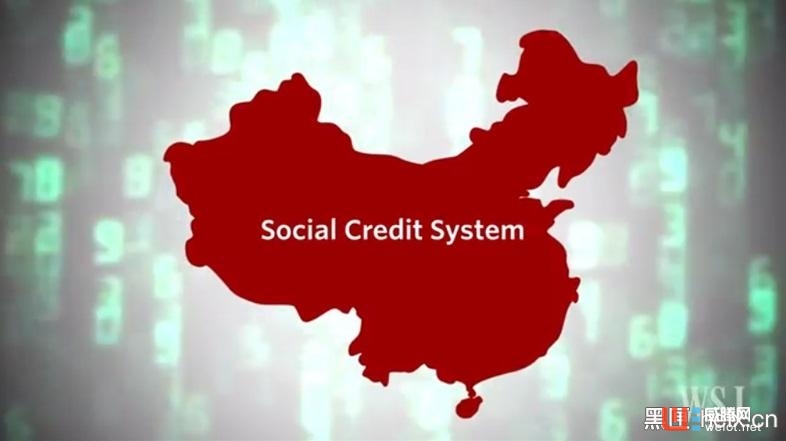源点注:英国《金融时报》又在操心我国的社会信用体系建设了。《参考消息》作了介绍,我们把原文一起找来了,供大家学习英文用。
参考消息网7月6日报道 英媒称,行业分析师表示,由于担心利益冲突,中国政府已缩减了授权科技企业主要根据消费者的在线活动对其进行“社会信用”评分的计划。
据英国《金融时报》网站7月5日报道,2015年,中国人民银行挑选了8家科技公司开展对消费者进行信用评分的试点项目,这一举措是中国政府支持的努力的一部分,目的是增加对数亿中国人的贷款,这些人希望获得小企业贷款或消费信贷,但没有抵押物或信用记录。北京原计划到2020年推出一个全国性的信用评分系统。
报道称,这些试点项目既监视用户的消费模式,也监视他们的个人行为和社交媒体活动,刚开始就引发了对于消费者隐私的担忧。其中的一些指标被认为并不相关,包括将日常锻炼习惯或每天上网的时间考虑进来的建议。还有更危险的做法,比如通过将信用分与朋友的社交媒体发帖挂钩来评估“诚信”程度。
报道称,在监管机构表示对潜在利益冲突的担忧之后,北京方面决定今年不发放任何授权。他们的担忧集中于这样一个事实:许多开发这些系统的公司也经营自己的电商和在线理财业务,且已被证明不愿与竞争对手分享数据。这使为个人建立信用评分变得困难。
“(推迟授权)的最大原因是,信用评分机构应该是独立的第三方,否则就会产生利益冲突,”新成立的北京大数据研究中心(是北京大数据研究院吧)的李铭说,“对真正独立的第三方来说,大门并没有关闭。”
报道称,采取这种比较谨慎的方式之际,监管机构正采取措施遏制高风险的金融行为。
原文如下:
Beijing has pulled back on plans to license big technology companies to develop “social credit” scores for consumers, based mainly on their online activity, because of concern over conflicts of interest, industry analysts said on Tuesday.
The People’s Bank of China, the central bank, selected eight tech companies in 2015 — including e-commerce group Alibaba’s Ant Financial and game developer Tencent — to develop pilot programmes to give consumers credit scores.
The initiative was part of a government-backed effort to increase lending to hundreds of millions of Chinese who want access to small business loans or consumer credit but have no collateral or financial history. Beijing originally aimed to roll out a nationwide system by 2020.
The pilots, which monitored spending patterns but also personal behaviour and social media activity, initially raised concerns about consumer privacy. Some of their metrics were seen as irrelevant, including proposals to factor in exercise routines or what time of day people went online. Others were considered more sinister, such as efforts to rate “honesty” or “trustworthiness” by linking credit scores to friends’ social media posts.
Beijing has now decided not to award any licences this year after regulators expressed increasing concern about the potential for conflicts of interest. Their worries centre on the fact that many of the companies developing the systems also operate their own e-commerce and online financing arms and have proved reluctant to share data with rival platforms. This has made it difficult to establish comprehensive scores for individuals.
“The biggest reason [for delaying the licences] is that the credit companies should be independent third parties, otherwise there could be a conflict of interest,” said Li Ming, of the Beijing Big Data Research Center. “The door isn’t closed to a truly independent third party.”
The more cautious approach comes as financial regulators move to rein in risky financial behaviour. Most notably, the head of insurer Anbang was last month detained because of concern about systemic risks from the purchase of overseas assets with money raised through high-interest financing products.
The PBoC is leaving open the possibility that the companies piloting the rating schemes could merge their credit scoring arms into an industry association, spin them off or find external partners, a government official said.
The central bank is examining more traditional ways to establish consumer credit ratings. But methods used in North America or Europe are not easily applied in China because although mortgages and credit card use are becoming more common, most Chinese still lack a formal credit history.
Harnessing big data available to tech companies had been seen as a solution to that problem, given the proliferation of online shopping, banking and investment via platforms owned by private tech companies.
For instance, Alibaba’s Sesame Credit system rates users partly on their purchases through Alibaba’s online payment system Alipay. China Rapid Finance, which is not among the eight pilot programmes, draws on data scraped from Tencent and others to develop its credit scores.
“I don’t see this as something the government will give up and they certainly don’t want Alibaba and Tencent to grow more powerful than they are now,” said Anne Stevenson-Yang, head of J-Capital Research. “
They want [consumers] to have a unique identifier and a single social credit record, so that would have to be managed by a government agency.”
This article has been amended to clarify that China Rapid Finance is not among the eight pilot companies that would have applied for licences
 征信宝官网
征信宝官网
